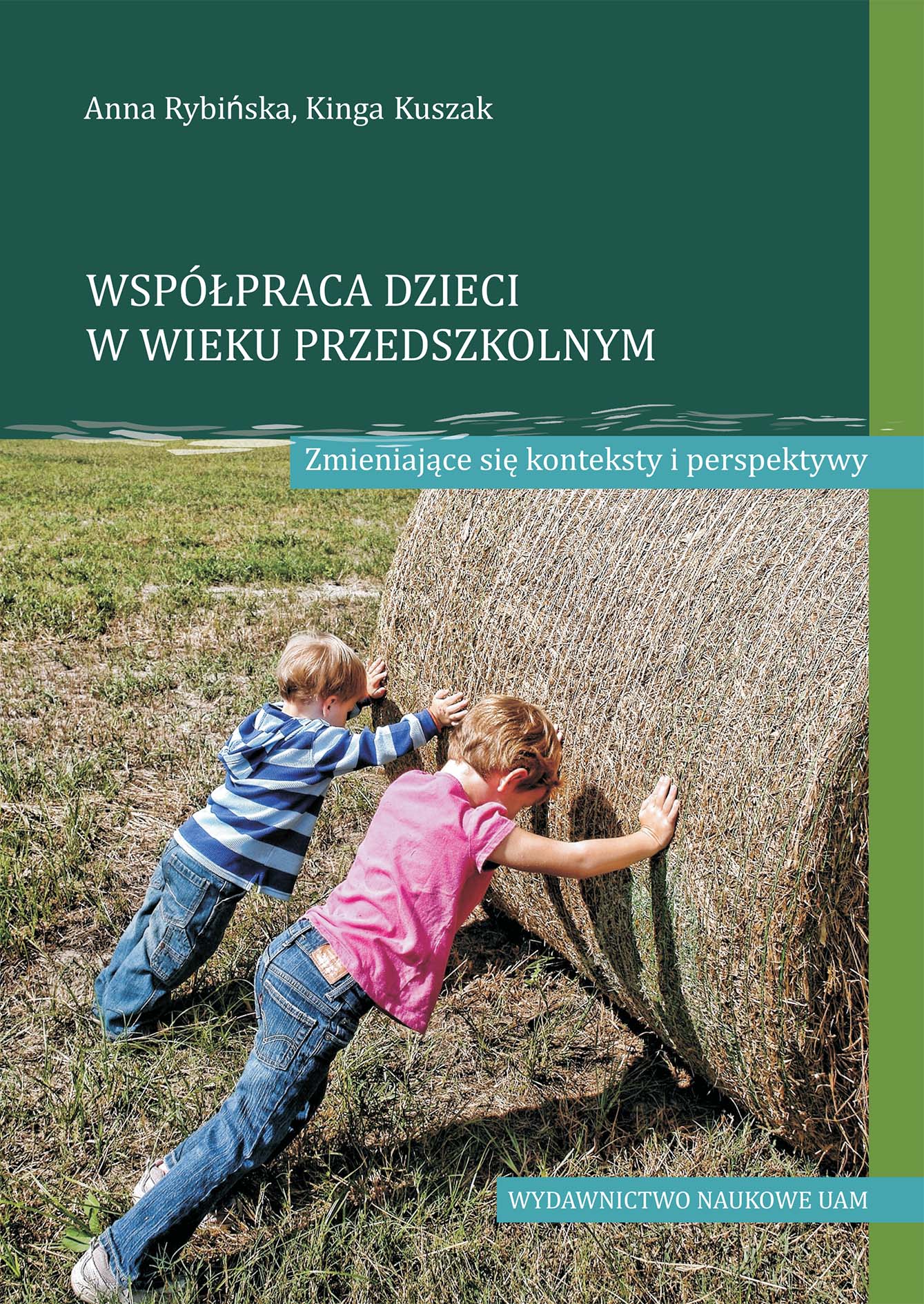Współpraca dzieci w wieku przedszkolnym
Cooperation of preschool children
Changing contexts and perspectives
Author(s): Anna Rybińska, Kinga Kuszak
Subject(s): Social Sciences, Education, Preschool education
Published by: Wydawnictwo Naukowe Uniwersytetu Adama Mickiewicza
Keywords: preschool child; preschool; preschool child cooperation
Summary/Abstract: Cooperation is among the key competences in the 21st century, and attention should be drawn to the importance of this competence for lifelong learning and the development process. This competence may be developed when individuals function in conditions conducive to undertaking joint actions with other people. Younger children already display dispositions to cooperation (as indicated by research conducted by M. Tomasello's team, for example), while children of preschool age are ready to undertake various types of activity together with their peers, older and younger people (as evidenced by the research findings quoted by the authors). The monograph deals precisely with the issue of preschool children's cooperation in changing contexts and perspectives. The authors attempt to look at the continuing changes in the perception of preschool children's competence to undertake and implement joint activities with other people. They draw attention to this change on a continuum: from categorising the child in mid-childhood as incapable of cooperation, to them suggesting cooperation with other children and teachers, through to including himself/herself in joint activities with adults in their local environment. They cite more and less well-known studies and their findings regarding the issue of cooperation among preschool children. The authors attempt to capture the changes in the perception of preschool's role and tasks, as well as teachers' relationships with children's parents and the wider local environment. These changes have tended to move from a managing and directing role for teachers to an increasingly broader understanding of cooperation as a key element of the 'culture of the educational institution', involving the collective setting of aims, rules, conditions for cooperation, ways of implementing activities etc. An example of a solution derived from modern psychological, sociological and pedagogical concepts of preschool children's interaction competence is the project "Preschoolers at the University" implemented in the Faculty of Educational Studies since 2014. THe authors devote a chapter of the monograph to this project. Presenting the assumptions of the project, the authors draw attention to the creation of a common space, a space in which various entities cooperate: representatives of the university; teachers and students, preschool heads and teachers, preschool children and their parents. They refer to selected statements and comments by project participants. In the following part, they refer to the children's angle on cooperation with others, using comments made by preschool children. At the end of the study, they present selected games conducive to fostering cooperation between preschool children.
- E-ISBN-13: 978-83-232-4003-7
- Print-ISBN-13: 978-83-232-4002-0
- Page Count: 172
- Publication Year: 2021
- Language: Polish
- Table of Content
- Introduction
- eBook-PDF

